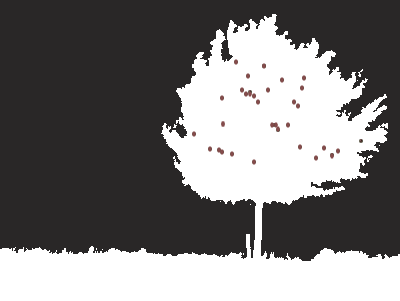Thoughts on Nothing
Posted on Wednesday, June 10, 2015

In Part 3 of this altogether brilliant post, Peter Casey talks about the power of not stating what you're singing about. He's talking about sex - how there's a much more useful tension for the actor and director to play with if we all know what the character wants, but they sing about something completely different; but the theory applies elsewhere too.
One of the first times I felt I'd accomplished something that made a genuine artistic statement was with a mini-opera I wrote for Tete a Tete back in 2002 called Has it Happened Yet? It features three very elderly ladies in various states of decrepitude who are wheeled out by their perky nurse to watch a solar eclipse. It's unclear to the audience whether any of them are in any state to take it in, and as one of the glories of nature rolls by in musical interlude, the old ladies stare out at us, saying nothing. Then one of them repeats the line she's been saying throughout - "has it happened yet?" - and the piece ends.
That piece had emerged out of a chat director and librettist Bill Bankes Jones and I had had when developing the piece, when he asked me for some favourite moments in opera. I straight away mentioned the scene in the field in Wozzeck where Wozzeck and his companion are gathering mushrooms and Wozzeck somewhat deleriously sees disturbingly meaningful patterns in the way the mushrooms lay on the ground. The music swirls with comparable musical puzzles and codes - so beloved of Berg - and the whole thing gives me the almighty shivvers every time I hear it.
But I guess the reason it gives me the shivvers are largely of my own invention - they tap in to some sense I have of the power of nature and the mystery of life, it's what I, the listener have supplied that makes it powerful to me. Or rather, Berg has allowed space in the meaning of his piece for me to bring something to it, and when that happens in art, I think that's when we feel the most powerful reactions.
Bill and I never explicitly said what the point of Has it Happened Yet was, but reflections on mortality, on the mystery of nature and more all floated around in the air for the audience themselves to discover. The absence of their direct statement created a tension comparable to what Peter Casey talks about in his post.
Another nice example of this I would suggest is Thomas Ades's brilliant Powder her Face. How brave, I've always thought, of a composer who is renowned for his surface glitter to write an opera about someone who is glamorous on the outside but hollow inside. Talk about turning your potential weaknesses into strengths - you can't help but fantasize that the young Ades (he was 24 when he wrote it which is frankly obscene) looked at himself with the jaded self-loathing eyes of a prodigy and thought, yes, I'm like her, let's write an opera about that! As a result, Powder her face seethes with this dramatic tension - what is the piece saying? What should we admire in this world where everyone seems pretty awful? I've read numerous different interpretations of what the work is about, and essentially all of them are valid, because the piece offers the space to allow them.
****
All of this is by way of introducing my newly completed opera Nothing, co-commissioned by Glyndebourne and the Royal Opera House, and premiering in Glyndebourne in February 2016. It was John Fulljames from ROH who first proposed the book - a young adult novel by the Danish author Janne Teller and just from the synopsis I knew it was fruitful operatic territory.
In the story, Pierre Anton (just Pierre in our version) stands up in class on the first day of school and says Nothing Matters - it's all meaningless, it's all pointless. He goes off and sits at the top of a plum tree for the rest of the opera, pouring scorn and plums on anyone who comes within earshot. The rest of the class are somewhat perturbed by this and set out to prove him wrong. They collect personal possessions they feel have 'meaning', and when this proves to be insufficient, they agree to nominate each other for the items they must give up. This soon spirals downhill and leads them down a very dark path with grotesque and gruesome consequences.
What I particularly admire in the book is that the whole question of 'Meaning' - whether there is any, and if so, what it is - is left completely unanswered - it is left to the reader to make up their own mind. Is Pierre actually correct - an uncomfortable but possible interpretation, particularly since the actions of the rest of the class are, by the end of the story, clearly misguided to say the least. Or is there a third option somewhere in between - or a fourth or a fifth?
I knew from my experience with Has it Happened Yet? that in such ambiguities music could usefully flourish, saying so much more than words could ever say, and allowing thoughts, emotions and ideas to blossom in the mind of the listener.
COMMENTS
Archive
2006 | 2007 | 2008 | 2009 | 2010 | 2011 | 2012 | 2013 | 2014 | 2015 | 2016 | 2017 | 2018 | 2019 | 2020 | 2021 | 2022 | 2023 | 2024 | 2025 | 2026 |

